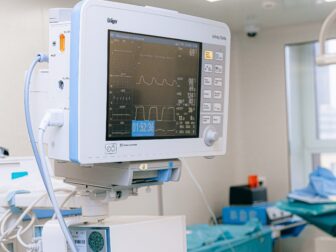Tag - IoT in Healthcare
Blog , November 27, 2023 , internet of things, IoT in Healthcare, smart hospital
Revolutionizing Patient Care: The Integration of IoT in Modern Healthcare Systems
Revolutionizing Patient Care: The Integration of IoT in Modern Healthcare Systems
The integration of the Internet of Things (IoT) in healthcare has marked a revolutionary step in the evolution of medical services. IoT in healthcare refers to the use of connected devices that can communicate and exchange data, offering incredible potential to enhance patient care, streamline clinical operations, and foster preventive medicine. This technological advancement has not only transformed the way healthcare providers interact with patients but has also significantly improved the efficiency and quality of care.
IoT devices in healthcare range from wearable fitness trackers to sophisticated remote monitoring systems. These devices collect a wealth of data that can be analyzed to provide insights into a patient’s health status. For example, wearable heart rate monitors can alert patients and doctors to potential cardiac issues before they become critical, while smart inhalers can track the use and dosage for patients with asthma, ensuring they are managing their condition properly.
One of the significant advantages of IoT in healthcare is the enablement of remote patient monitoring (RPM). RPM allows healthcare professionals to continuously monitor patients without the need for them to stay in the hospital. This not only reduces the strain on healthcare facilities but also provides comfort and convenience to patients who can recover in their own homes. RPM is especially beneficial for managing chronic diseases, post-operative care, and elderly care, where ongoing supervision is necessary.
Moreover, IoT has a crucial role in enhancing the accuracy of diagnoses and treatment plans. Data collected from IoT devices can be fed into advanced analytics and artificial intelligence (AI) systems to spot trends, predict outcomes, and personalize treatment options. By analyzing vast amounts of data, healthcare providers can make more informed decisions, tailoring their approach to the individual needs of each patient.
The implementation of IoT in healthcare also streamlines operations and reduces costs. For instance, smart inventory management systems can track medical supplies and automate orders when stocks are low, ensuring that essential items are always available. Similarly, IoT-enabled asset tracking can locate equipment within a healthcare facility, reducing the time spent by staff searching for resources and improving asset utilization.
However, the adoption of IoT in healthcare is not without challenges. The primary concern revolves around data security and patient privacy. With a growing number of connected devices, the risk of data breaches increases. It is crucial for healthcare providers to implement robust cybersecurity measures to protect sensitive health information. Furthermore, there must be clear regulatory compliance and standards in place to govern the use and sharing of health data.
In addition to security, another challenge is the integration of IoT with existing healthcare IT systems. Healthcare providers need to ensure that IoT devices and platforms can seamlessly communicate with electronic health records (EHRs) and other clinical systems to enable the effective use of collected data.
Despite these challenges, the future of IoT in healthcare looks promising. Research and development continue to advance the capabilities of IoT devices, with innovations like ingestible sensors and implantable monitors on the horizon. As technology evolves and connectivity improves, IoT is set to become an even more integral part of healthcare delivery, leading to better patient outcomes, optimized medical practices, and a more efficient healthcare system as a whole.
In conclusion, IoT in healthcare is a transformative force that has the potential to reshape the landscape of medical care. By embracing this technology, healthcare providers can deliver more personalized, proactive, and high-quality care to patients while simultaneously improving operational efficiency. As we move forward, it is critical to address the challenges and harness the full potential of IoT to ensure a healthier future for all.
